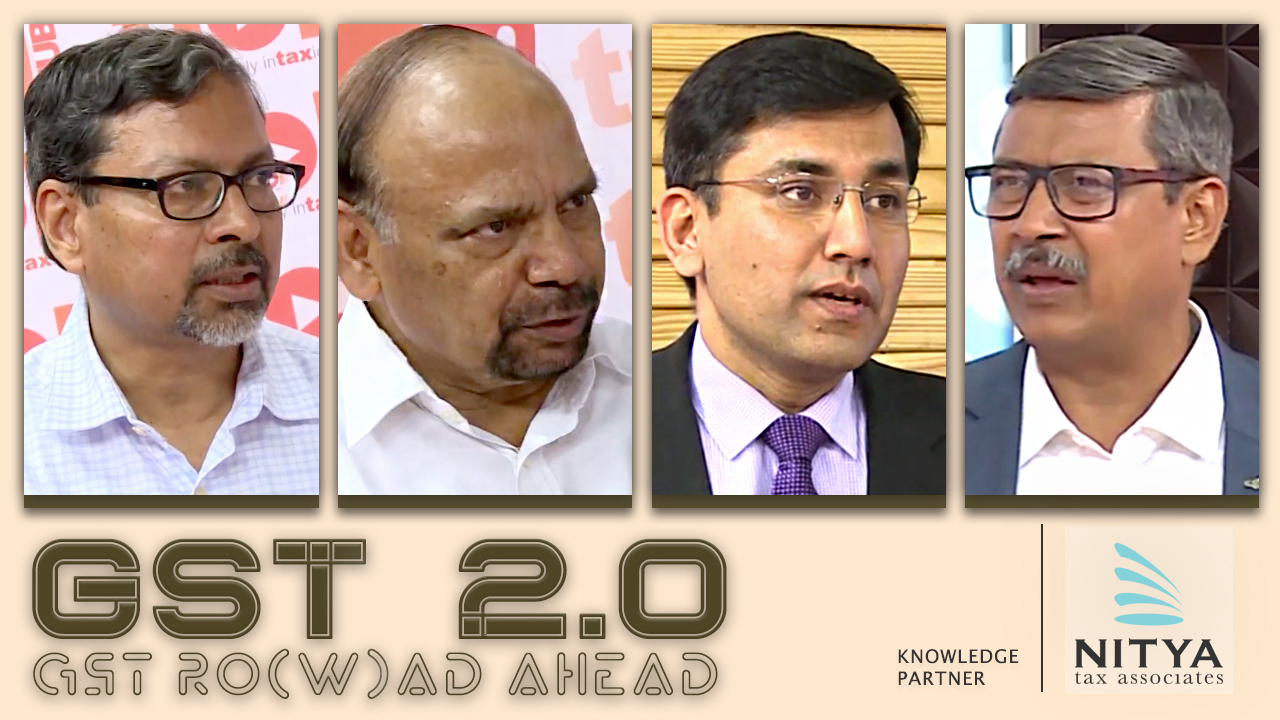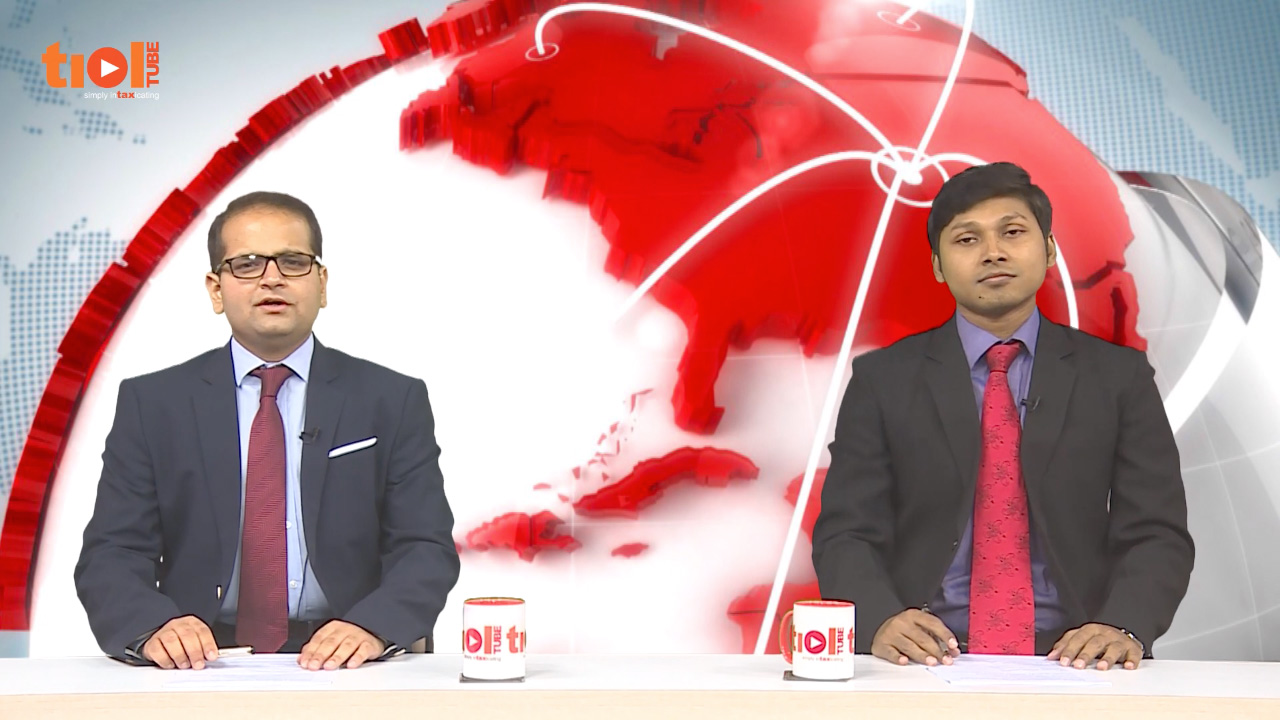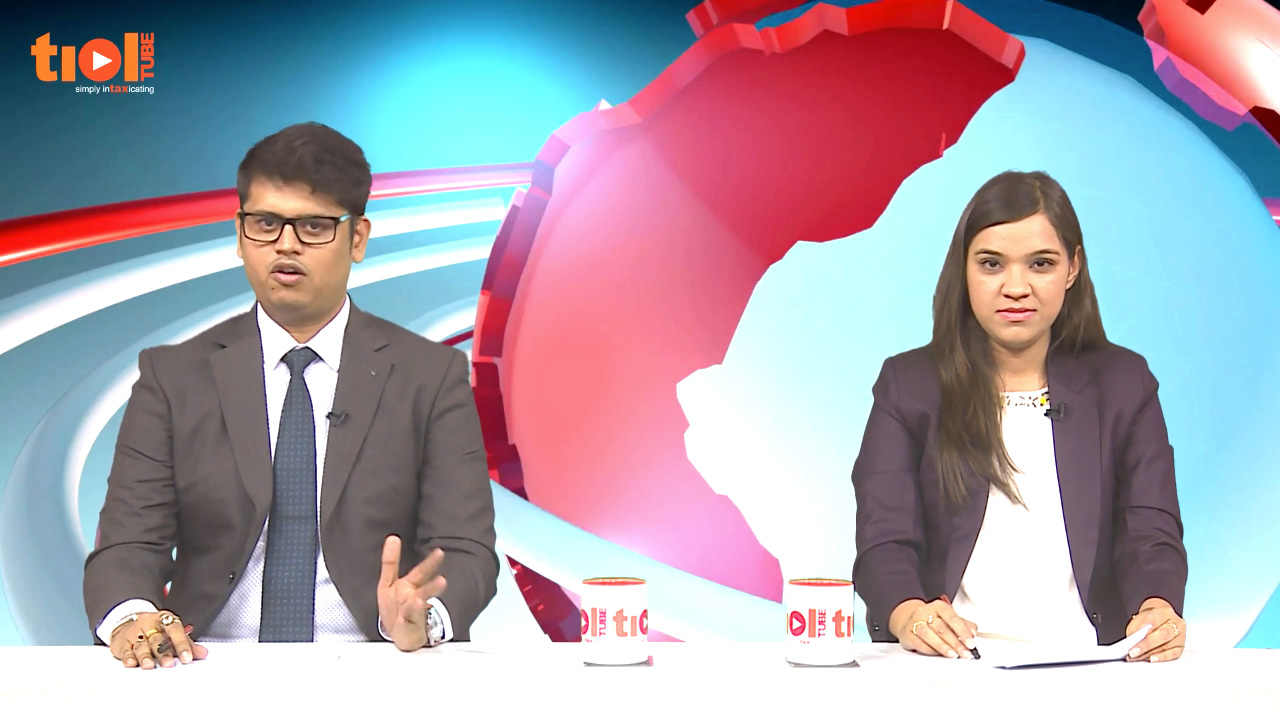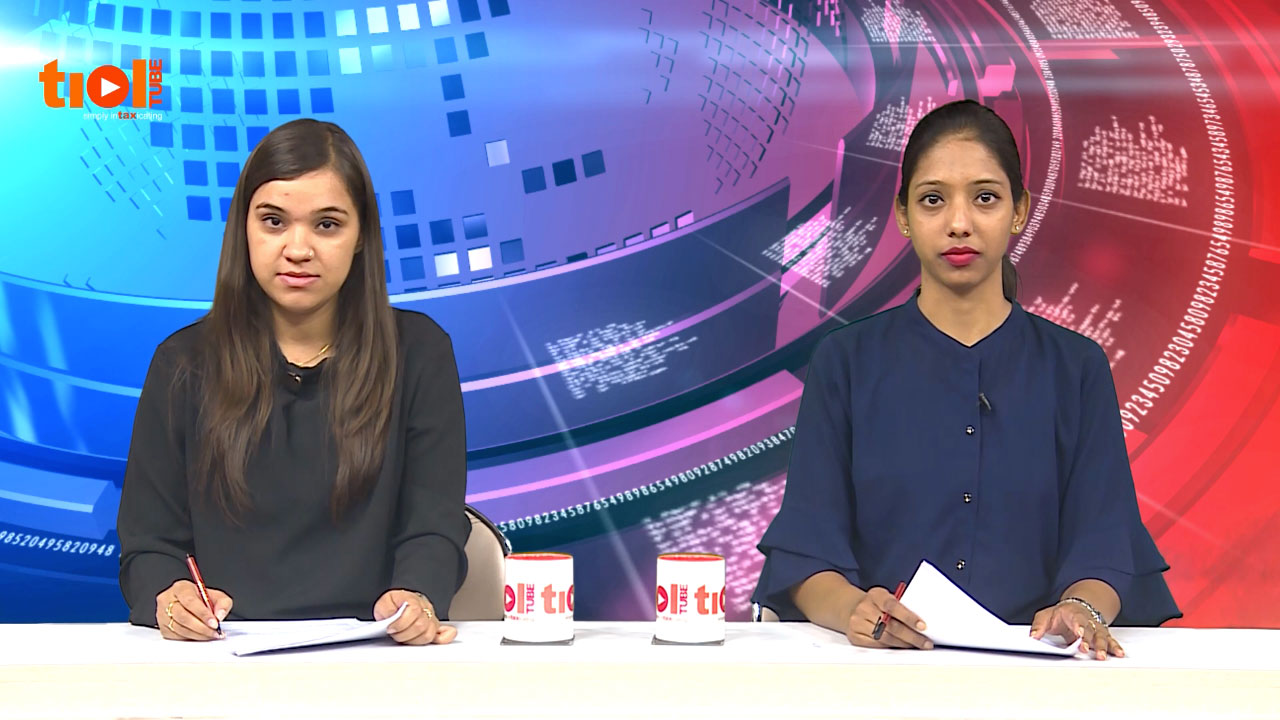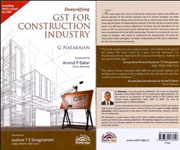|
SERVICE TAX
2019-TIOL-1524-CESTAT-MAD
Prince Foundations Ltd Vs CST
ST - Construction of Residential Complex Service - Appellants had engaged themselves in construction of residential and commercial complex in and around Chennai area - Pursuant to audit and other investigations carried out by department, it appeared that appellants had not paid/short paid service tax liability in respect of the various projects undertaken by them - demands confirmed and penalties imposed with interest - appellant submits that most of the demands confirmed in the aforesaid impugned order to these appeals now stands covered by the decision of Supreme Court in the case of CCE Vs Larsen & Toubro Ltd. - 2015-TIOL-187-SC-ST and the Tribunal decision in Real Value Promoters Pvt. Ltd. Vs CCE - 2018-TIOL-2867-CESTAT.
Held:
ST - Insofar as demands made under the category of CICS/CCS is concerned, appellant is correct in his assertion that the demands in these impugned orders which relate to composite contract will not be liable to service tax prior to 1.6.2007 by virtue of the Apex Court judgement in L & T Ltd. (supra) and even for the period post-1.6.2017 as held in Real Value Promoters (supra) - In the event, the demand of Rs.94,62,842/- with interest and Rs.5,18,152/- towards short payment of service tax relating to composite works contract cannot be sustained and, therefore, that portion of the impugned order to the contrary will be required to be set aside - Appeal ST/258/2012 is allowed with consequential benefits: CESTAT [para 5.2, 5.8]
ST - Insofar as Management, Maintenance and Repair Service, such amount received from buyers which would be passed on to the owner's association formed, will not be a consideration for any service - that part of the order to the contrary is set aside and appeal is allowed on this score with consequential benefits: CESTAT [para 5.3, 5.8]
ST - Demand raised under Renting of Immovable Property Service - merit found in the appellants plea for remand of the matter to the original authority to substantiate their claim that they are entitled to avail cenvat credit of service tax paid by the owners of the property - Appeal ST/258/2012 is remanded only on this score to original authority - Considering that the matter was mired in litigation for quite some time, penalties imposed in relation to this demand under the provisions of Finance Act, 1994 are set aside: CESTAT [para 5.4]
ST - Demand made under CICS/CCS - As already held, the demands relating to composite works contract along with interest in respect of Appeal ST/259/2012 for the period 2008-09 cannot sustain in view of this Bench decision in Real Value Promoters (supra) and same will be required to be set aside - Appeal ST/259/2012 is allowed with consequential benefits: CESTAT [para 5.5]
ST - Management, Maintenance and repair service - expenses towards electricity, diesel and water incurred by the appellants over and above the maintenance charges received from their clients - it is evident that these amounts have been reimbursed by the clients and hence the ratio of Supreme Court judgement in Intercontinental Consultants and Technocrats (2018-TIOL-76-SC-ST) would apply on all fours to the issue at hand - demand cannot survive and is set aside in toto - Appeal ST/40901/2014 on this issue is allowed with consequential benefits: CESTAT [para 5.7]
ST - Raison d'etre of the said demand of Rs.2,01,305/- viz. short payment under RIPS has been amplified and it has been clearly mentioned that demand relates to short payment of service tax under Renting of Immovable Property Service (RIPS) under the category of letting out of premises by assessee to their clients namely 3i Infotech, CSS Corp, Optimus Global Syntel etc. - In consequence, the plea of the appellants that 'demand not clear' does not have any merit - no reasons to interfere with the said demand, hence appeal to the said extent is dismissed: CESTAT [para 5.7]
- Appeals disposed of: CHENNAI CESTAT
2019-TIOL-1519-CESTAT-HYD
Tata Projects Ltd Vs CST
ST - The assessee had entered into three agreements with M/s APPDCL as per the LOI issued by them, of which two are supply contracts and one is a contract for services which also included supply of some material - He also had an umbrella agreement combining these three agreements - It is not also in dispute that in addition to the supply, the assessee had discharged VAT/CST in respect of the supply contracts - The only question remains to be answered is whether the value of this onshore and offshore supplies by assessee need to be included in value of services rendered by them under the works contract scheme - It is not in dispute that the material in question was supplied by assessee with respect to this particular contract and after the supply was completed, the goods which were supplied were given by APPDCL back to assessee for execution of the contract - A plain reading of CBEC circular 334/13/2009-TRU explains that such values became includible in value of works contract as per the amendment made vide notfn 23/2009-ST - By inserting an explanation, it was also clarified by CBEC themselves that the inclusion of the values would not apply to such contracts where either the execution of works contract has already started or any payment has been made on or before 07.07.2009 - In this particular case, the payments in respect of all the three contracts were made prior to 07.07.2009 - Needless to say that there is no separate payment under the umbrella contract because it was only a combination of the other three contracts - This issue was agitated by assessee before the adjudicating authority who, however, did not agree with this contention - The value of the material supplied under off-shore and on-shore contracts cannot be included in the value of the works contract service as the advance payment in respect of all the three contracts are received prior to 07.07.2009 - This case is identical to the case of ESSAR Projects (India) Limited - 2013-TIOL-1951-CESTAT-AHM in which a similar view has been taken - In view of the same, the demand of service tax and interest and imposition of penalties in impugned order are not sustainable: CESTAT
- Appeal allowed: HYDRABAD CESTAT
2019-TIOL-1518-CESTAT-HYD
Zavata India Pvt Ltd Vs CC, CE & ST
ST - The assessee provides support to M/s Zavata Inc, USA who provides health services to their clients such as patients, hospitals and insurance companies - They have been providing these services to the clients of M/s Zavata Inc, USA on their behalf and has been receiving consideration from them for the services - The main question in dispute is whether the services rendered by assessee fall under BAS or ITSS - The scope of these two services has been clarified by CBEC in Circular 62/11/2003-ST - The nature of services rendered by assessee through M/s Zavata Inc, USA to their clients are in the nature of documentation and other services related to health administration - Clearly it is nobody's case that assessee is maintaining their computer systems or managing their software - CBEC's clarification in this Circular leaves no doubt that assessee's services do not get covered under ITSS but fall under BAS which were taxable during relevant period - Since, they have exported these services they are entitled to benefit of refund of input service tax - In the case of IBM Daksh Business Process Services Pvt Ltd - 2014-TIOL-648-CESTAT-DEL it has been categorically held that the service provided on behalf of clients is covered by definition of BAS in Sec. 65 (105) (zzb) read with Sec. 65(19) - On the question of nexus between exported service and the input services following the test laid down in CBEC Circular 120/01/2010-ST, the disputed services have a direct bearing in the provision of the export services and lack of these services will definitely effect the provision of output services - Therefore, there is nexus between these input services and the exported output services - The impugned orders are set aside: CESTAT
- Appeals allowed: HYDERABAD CESTAT
CENTRAL EXCISE
2019-TIOL-1133-HC-ALL-CX
Tin Manufacturing Company Vs CCE
CX - By the order under appeal, Tribunal has dismissed the application of assessee filed for ROM under provisions of Section 35C(2) of Central Excise Act taking into account the facts of the case that an order was passed against the assessee against which assessee filed ROM application under provisions of Section 35C (2) of the Act pointing out certain alleged mistakes apparent on the face of record and prayed for rectification of the same, which was disposed of by Tribunal by Miscellaneous order dated 04.01.2000 rejecting the same saying that there is no mistake in the said order - After a period of more than 17 years, assessee filed a second fresh application for ROM in the order passed on 04.01.2000 - The plea taken by assessee is that the order was received on a certain date - However, the provisions of Section 35C(2) of the Act, which provides for ROM is very clear - This is a matter of record that the first application is rejected - The assessee had participated in matter and had moved a second application virtually seeking a review of earlier order - The assessee sought to extend the limitation under the provisions, which is a period of six months by saying that he was not in receipt of the said order - Upon a reading of the application itself it seems that the mistake, which he was seeking to correct was not in the nature of a mistake apparent on the face of record but virtually he sought a review in the original order passed by the Tribunal - The Tribunal has, therefore, rightly come to the conclusion that the application was bound to be rejected for reasons that limitation could not have been extended and there was no mistake, which was sought to be corrected, which was apparent from the face of the record - No reason seems to interfere in order passed by Tribunal, same is affirmed - The questions of law are decided against the assessee and in favour of the revenue: HC
-
Appeal dismissed
: ALLAHABAD HIGH COURT
2019-TIOL-1517-CESTAT-HYD
Hetero Drugs Ltd Vs CCT
CX - If the head office commits an error or plays mischief and wrongly distributes credit either by availing ineligible credit itself or by improperly distributing it, the recipient of the ISD invoices will not be able to correct the mistake - They will also not be able to explain why the credit was wrongly taken or distributed by their head office - Once they have accepted the ISD invoices issued by their head office in good faith, extended period of limitation cannot be invoked and the entire demand is time barred: CESTAT [para 10]
CX - Rule 7 of CCR, 2004 - The term 'manufacture' is not defined in CCR, 2004 - Therefore, in terms of Rule 2(d), this word has the same meaning as in Central Excise Act, 1944 which defines manufacture as "manufacture includes any process incidental or ancillary to the completion of manufactured product" - Rule 2(l) of CCR, 2004 expanded this definition for the purpose of CENVAT credit with expression "in or in relation to manufacture" - Thus, many activities which are not normally considered as manufacture will also get covered in the definition of manufacture - Rule 2(l) of CCR, 2004, further enlarges this definition by including services used in relation to modernization, renovation or repairs of a factory, recruitment, quality control, accounting, market research, sales promotion, advertisements, etc., which in the normal course would not fall in definition of manufacture - Obviously, several activities such as sales promotion, marketing, legal services, accounting etc., may not be handled in the factory but in the head office of the company - Evidently, the scheme of CENVAT Credit Rules itself envisages the manufacturing unit in the field getting credit of services which are used in the head office, which will be indirectly relatable to the manufacture or which will not be directly relatable to the manufacture of final products in the field units - insurance services for all group companies, surveying services, fabrication service, civil construction related services, epoxy flooring/ wall coating service, painting service, repairs and maintenance service, travelling service, pest control service in corporate office, service related to maintenance of air conditions and lifts in Head office, courier service used for dispatch of commercial samples, etc., Service Tax distributed by the HO in respect of the above services is admissible as credit - Impugned order set aside and appeal allowed: CESTAT [para 9, 11, 12]
- Appeal allowed: HYDERABAD CESTAT
2019-TIOL-1516-CESTAT-CHD
Haryana Industries Vs CCE & ST
CX - DGCEI allegation is that fictitious firms were floated to issue CENVATable invoices without supply of any goods and enable the manufacturer appellants to avail inadmissible credit - in the matter of the same investigation, several cases were adjudicated by the Tribunal and wherein it was held that when the supplier of goods and appellants have admitted that they received the goods against invoices in question and which were used in manufacture of final goods that were cleared on payment of central exicse duty, burden is cast on Revenue to find wherefrom the appellant had procured the inputs against the invoices in question - appellant has, in terms of rule 9(2) of CCR, 2004 taken proper care to examine the invoices against which goods were received and it is not their duty to know about the manufacturer when invoice contains all the details in terms of Rule 9(2) - without investigating the allegation of non-receipt of input, benefit of doubt goes in appellant's favour - credit allowed and penalty set aside: CESTAT [para 3, 4]
- Appeal allowed: CHANDIGARH CESTAT
CUSTOMS
2019-TIOL-1515-CESTAT-AHM Venus Petrochemicals Bombay Pvt Ltd Vs CC
Cus - The appeal has been filed by assessee in respect of goods imported by them which were confiscated by Revenue by changing the classification of the goods - The entire issue relates to ITC restrictions - The goods falling under Chapter Heading 2710 12 90 are restricted as per Import Policy and allowed to be imported through STE only, as per policy condition-5 of Chapter 27 of ITC (HS) Schedule-1 - Thus, if the imports are in violation of aforesaid condition, then the same would be liable to action under the Customs Act - The said restriction is specifically applicable to CTH 2710 12 90, claimed by Revenue and not to 2710 19 90, claimed by assessee - Consequently, depending on the correct classification of the product, the ITC restriction would apply to the imports - It is apparent that the product imported by assessee answers to specifications prescribed under sub heading note 4 and therefore, would fall under the description "light oils and preparations" of sub heading 2710.12 - The redemption fine has been imposed on assessee - It is apparent that confiscation in such cases is not based on any intention or any malafied acts of assessee - The section is triggered when the prohibited or restricted goods are imported without due authorization - The bonafide or malafide intention of importer is of no relevance so far as confiscation under section 111(d) of the Customs Act is concerned - The assessee has also relied on the decision of Apex Court in case of Northern Plastics - 2002-TIOL-1889-SC-CUS - In the said case facts were significantly different - There is no element of differential duty involved in this case - Keeping in view that the only element of violation involved was with reference to policy and that there was no element of duty involved, the quantum of penalty and redemption fines are excessive - Consequently, the penalty and redemption fines are reduced to Rs. 20 lakhs each: CESTAT
- Appeal partly allowed: AHMEDABAD CESTAT |
|



